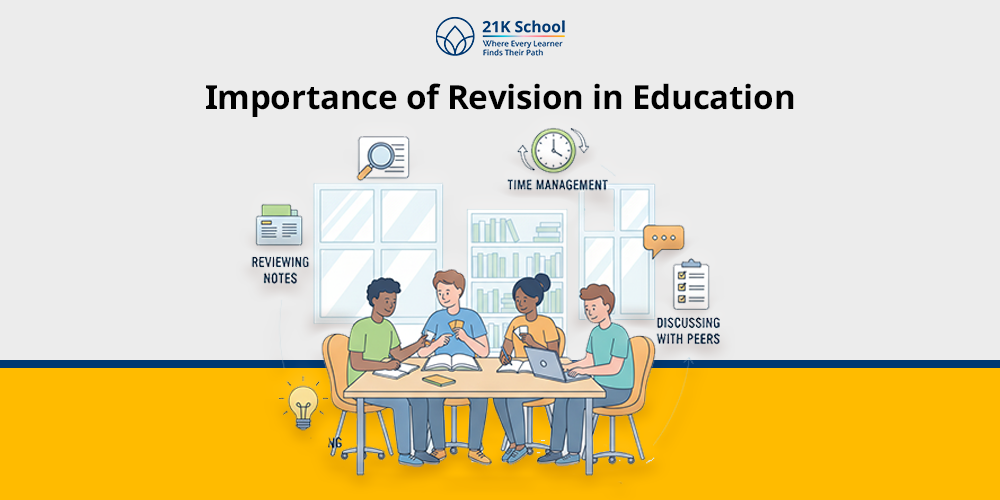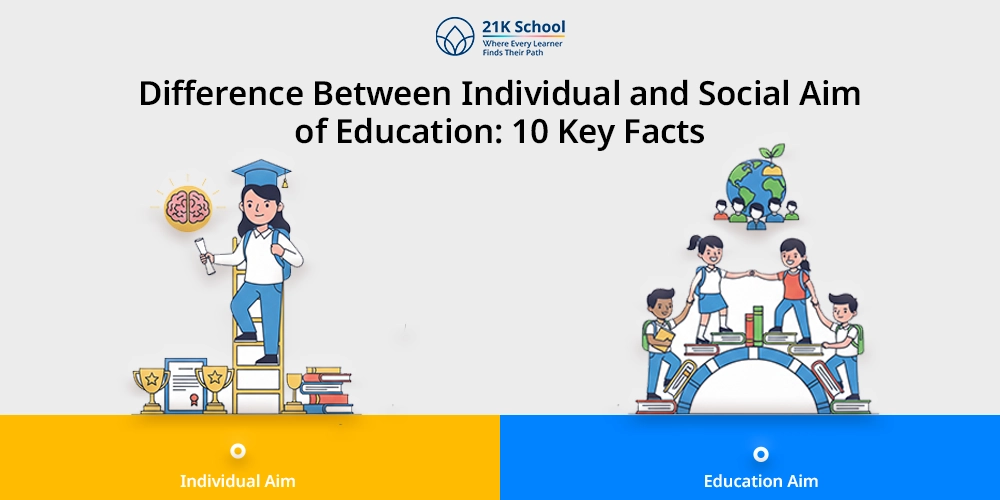
Revisions are part of our daily learning and growth . It takes a lot of practice and revisions after which we actually deeply understand a concept or a skill.
Every success story that we hear is the fruit of repeated and focused revisions.
Revision is all about revisiting the same theories and notes again to find better and understandable conclusions. This way your mind remembers things clearly.
Now, if you want to know what are the other importance of revisions, you will have to go through the article below. So get on to it.
Contents
- What is Revision?
- Importance of Revision
- 1. Strengthens Memory
- 2. Increases Retention
- 3. Enhances Understanding
- 4. Improves Exam Performance
- 5. Builds Confidence and Reduces Stress
- 6. Identifies Knowledge Gaps
- 7. Promotes Active Learning
- 8. Refines Exam Techniques
- 9. Improves Clarity
- 10. Develops Critical Thinking and Analytical Skills
- 11. Encourages Time Management and Discipline
- 12. Supports Long-Term Learning
- 13. Enhances Focus and Motivation
- 14. Improves Quality of Education
- Concluding Thoughts: Revise and Revise
What is Revision?
Revision simply says “seeing again”.
So, the act of revising includes going through previously written things again to grasp, memorise, understand, and retain it better.
Students often revise whatever they are taught in their schools and tuitions to get mastery of it.
It also plays an important role in reducing exam stress .
Young learners are encouraged from an early age to depend on revisions and learn how to do it efficiently.
This helps them develop their time management skills with a well structured study timetable , and critical thinking .
If you are curious about the other areas influenced by revisions, the next section would speak to you.
Importance of Revision
The multiple importance of revisions include the following:
1. Strengthens Memory
The most important thing in passing information between the short and the long term memory is revision.
This is because when you repeat what you have already learned your brain strengthens the neural pathways and therefore, it becomes easier and quicker to remember.
This is supported by the spacing effect showing that remembering information on a regular timetable is much more likely to improve the memory as compared to stuffing.
2. Increases Retention
Most learners are incapable of just reading once and getting the information engrained in their minds.
Several revisions are the best possible way to enable you to remember longer.
The review sessions are like a rehearsal of the mind to enhance your capabilities of remembering the information correctly when taking the exams or in real life.
Repeated revisions helps your memory to stick, so first see .
3. Enhances Understanding
Everything that you study or try to assimilate in your brain might not come after the first attempt of introduction of chapters.
On a second attempt, revision enables you to adopt a fresh idea and a clear view of that.
Once you repeat your notes, you begin to see relations between ideas and knowing their applications.
Such a deeper insight sparks more intelligent and analytical performance in exams.
4. Improves Exam Performance
Revision has a direct effect on examination performance.
Revising every now and then is one of the surest ways of retaining important details, definitions, and steps to problem-solving under pressure.
It also gives you time to practice sample papers, comprehend question patterns and devise ways of saving time to use during exams.
Revision strategies can help students to perform significantly better than those who study last minute.
5. Builds Confidence and Reduces Stress
One of the greatest causes of exam anxiety can be the fear of forgetting.
Revision is the solution to that by giving you the feeling that you are well-prepared and in control.
The better the revision sessions were, the more confidence would be generated since you are reminded of what you already know.
The more complete you feel in your preparation, the lower your stress levels become. And then you are able to function calmly and effectively.
6. Identifies Knowledge Gaps
By the time you revise, you will find out pretty soon what you have and have not understood. This self-reflection is very important in focused learning.
Revision will enable you to identify areas where you are weak and correct them before the exam.
Wasting time on what you have already known won’t help much in such situations.
It is a kind of self-reflection that makes no idea incomplete.
7. Promotes Active Learning
Revision can turn passive learning into active learning as it asks you to summarize, paraphrase, draw diagrams, and test yourself, which all are ideas to learn by active processing.
Learning with participation can provide more effective understanding and retention in a working manner.
It also makes the process of studying dynamic and less monotonous.
8. Refines Exam Techniques
Exams are more than knowledge testing as they also examine presentation of your answers in your answersheets.
Revision will provide you with the opportunity to improve your writing style, schedule and structure of answers.
Here’s how to improve your handwriting .
Through old papers or simulated tests, one is able to understand how to apply the priorities, the time management and how to organize the answers logically.
9. Improves Clarity
It is easy to be confused or misunderstand during the learning process. Revision can also assist to wipe this mist away.
By reviewing your notes once more, you will be able to simplify complicated points, make sure you are correct and reorganize your ideas.
This enhanced understanding not only makes you understand everything but also gives you the right way to approach them.
10. Develops Critical Thinking and Analytical Skills
The revision is all about memorizing and connecting ideas for improved knowledge acquisition.
As you go on and read your lessons many times you start to realize that there are patterns, relationships and principles underlying them.
This process will build your critical and analytical capabilities , which are necessary for examination and for academic and career achievement.
11. Encourages Time Management and Discipline
A revision schedule takes planning, consistency and student discipline which are essential in life.
Revision on a regular basis will teach you to spend your time well, procrastination is to be avoided, and always ensure that you maintain progress.
This discipline would develop an effective mentality that goes beyond just academics in the long run.
12. Supports Long-Term Learning
Long term learning is the best way to actually attain real life skills and knowledge, and it comes from continuous revisions.
You might have seen young learners who prepare themselves for exams just before a night. They might pass their exams but will those lessons stick with them for future use?
That is why revisions are necessary to be done regularly prior to exams, as it brings concept understanding and can also make you really intelligent.
13. Enhances Focus and Motivation
With repeated revisions, children feel that they have enhanced their focus and attention while studying.
Each time they look at familiar concepts, they find something deeper and familiar that motivates them to analyse their progress.
When the progress becomes visible, they feel relaxed and motivated to learn more and with better perception.
14. Improves Quality of Education
The quality of education is a by-product of reviewing the same materials with better consciousness and comprehension.
The process converts dispersed knowledge into an orderly and confident one.
This approach is automatically converted to quality oriented. This is how it is also useful in assisting in exams as well as the establishment of a lifelong learning habit.
Explore the top revision tips which helps students to study for exams effectively .
Concluding Thoughts: Revise and Revise
Revision should be practiced as a study habit
that is critical in transforming the knowledge into a mastery.
It can be an irreplaceable part of small children’s daily study routine
.
Without revisions, no knowledge can be practiced for a longer time period and this is what learners need to remember.
For better academic achievements and for being successful in life, revision should be the one of the most important.
Look at some more ways to improve a childs academic performance .
So revise precisely and see yourself being your ideal self in future.

